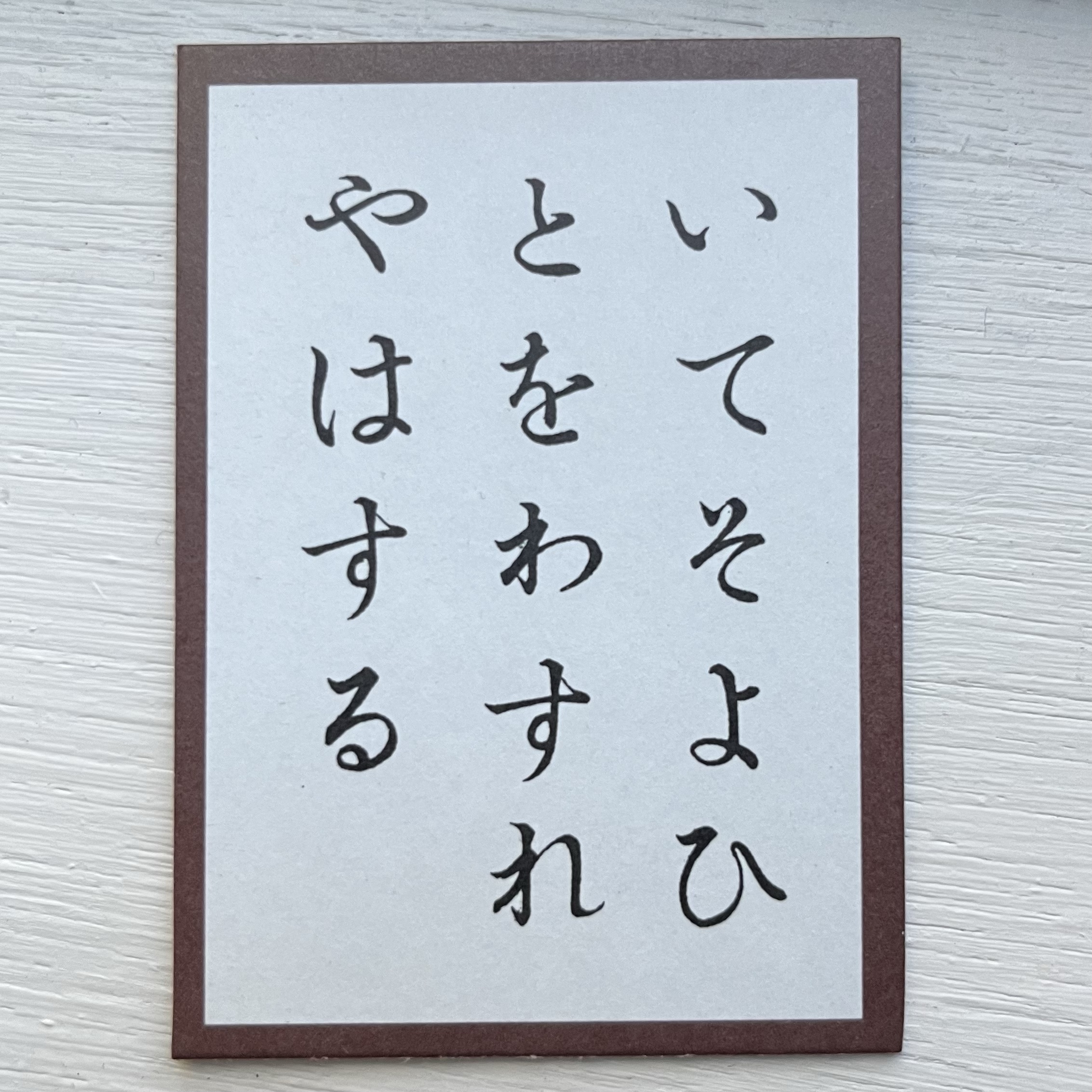Another poem dedicated to those who were lonely for Valentine’s Day recently:
| Japanese | Romanization | Translation |
| わがそでは | Waga sodé wa | My sleeves are like |
| 潮干に見えぬ | Shioi ni mienu | the rock in the offing that |
| 沖の石の | Oki no ishi no | can’t be seen even at low tide, |
| 人こそしらね | Hito koso shirané | unknown to anyone, but |
| かはくまもなし | Kawaku mamo nashi | there’s not a moment they are dry. |
The author of this poem is Nijōin no Sanuki (二条院讃岐, 1141 – 1217), also known as “Lady Sanuki of Nijōin”. Her real name isn’t known. It is known that she was a daughter of famous warrior/poet Minamoto no Yorimasa and served the retired Emperor Nijō, hence her name nijōin (Imperial House of Nijō). The “Sanuki” part comes from Sanuki Province where her father was once posted on assignment.
Sanuki, like Sokushi, was a leading female poet of her day, and this poem helps illustrate why. As we discussed recently in poem 90, the image of sleeves wet with tears was a popular poetic technique used at the time for unrequited love (again, see poems 42, 65, and 72) but the idea of such sleeves being hidden like a submerged rock offshore was a novel, new way of expressing this.
Indeed, Sanuki became so famous for this verse, she herself was often referred to as oki no ishi no Sanuki (沖の石の讃岐) by later poets and authors. It was pretty rare for a poet to receive such a name for a famous verse they composed but a few other examples exist. Another female poet named kunaikyō (宮内卿) was called wakakusa no kunaikyō (若草の宮内卿) because of a famous verse she wrote regarding young grass (wakakusa, 若草) from the Shin Kokin Wakashū:
| Japanese | Romanization | Translation |
| 薄く濃き | Usuku koki | Light and dark: |
| 野辺のみどりの | Nobe no midori no | the green of the field’s |
| 若草の | Wakakusa no | young herbs |
| あとまで見ゆる | Ato made miyuru | distinct in |
| 雪のむら消え | Yuki no muragie | patches of fading snow. |
Pretty awesome when you can make a name for yourself that way.


Leave a comment